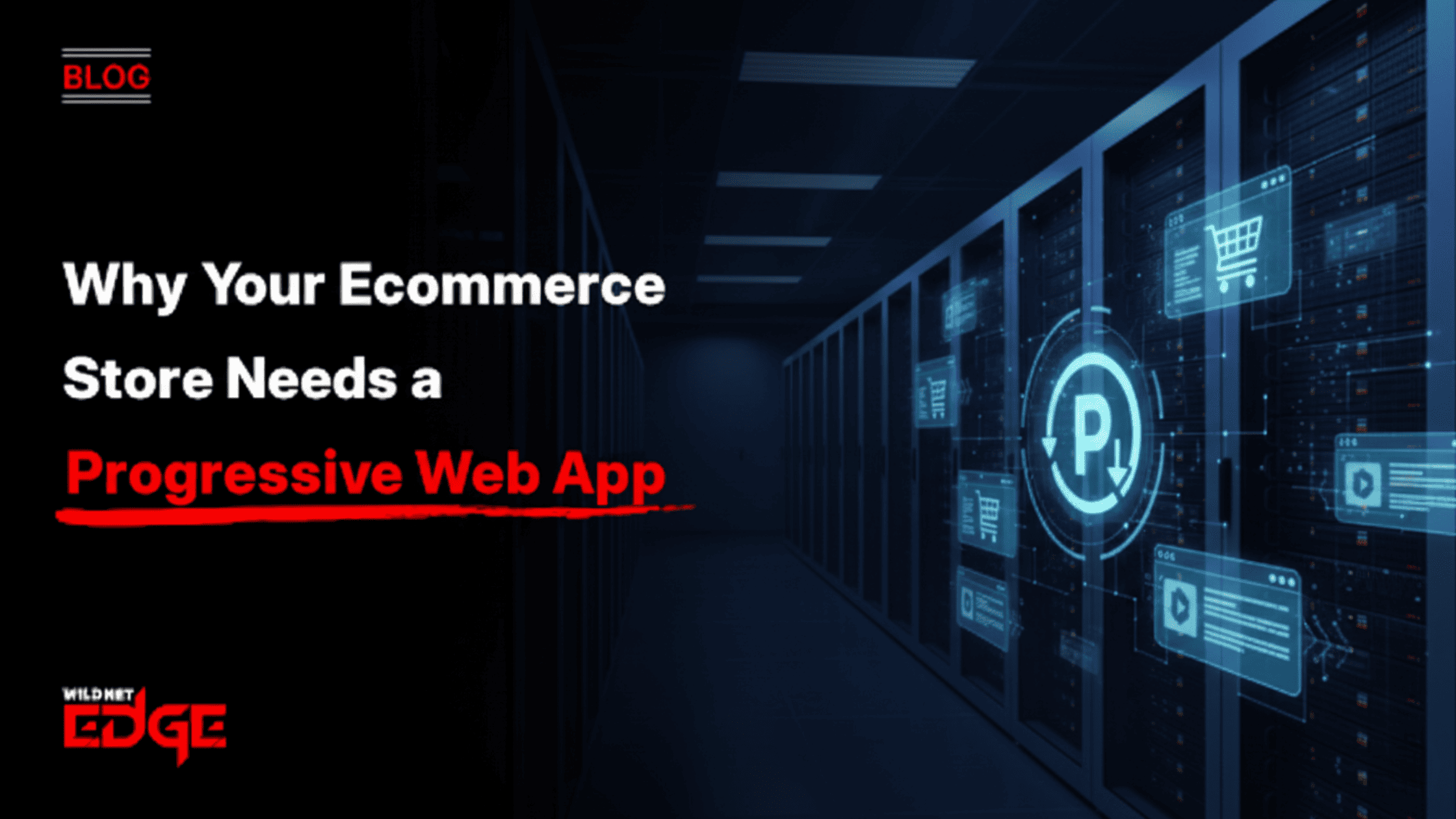TL;DR
This article explains the strategic importance of Progressive Web Apps for eCommerce businesses seeking to optimize their mobile presence. It defines PWAs as web applications that offer native app-like features, such as offline access and push notifications, directly through a browser. The guide details significant PWA benefits, including faster performance, improved user engagement, and enhanced discoverability via search engines compared to native apps. It highlights how PWAs are a cornerstone of a successful mobile-first eCommerce strategy, providing a seamless and reliable experience that boosts conversion rates and builds customer loyalty without requiring an app store download.
In the fiercely competitive eCommerce landscape of 2025, your mobile website is no longer just a smaller version of your desktop store; it’s likely your primary customer touchpoint. However, traditional mobile websites often suffer from slow load times, unreliable connectivity, and a lack of engaging features. This friction leads to lost sales and frustrated customers. The solution? A modern technology that blends the best of the web with the best of native mobile apps: Progressive Web Apps for eCommerce.
What are Progressive Web Apps for eCommerce?
A Progressive Web App is a type of web application built using modern web technologies that delivers an app-like experience directly within a user’s browser. Unlike native apps that need to be downloaded from an app store, a PWA can be accessed instantly via a URL but can offer many features previously exclusive to native apps.
Key characteristics include:
- Reliable: Loads instantly, even in uncertain network conditions (or completely offline).
- Fast: Responds quickly to user interactions with smooth animations.
- Engaging: Feels like a natural app on the device, with features like push notifications and the ability to be “installed” on the user’s home screen.
For an online store, Progressive Web Apps for eCommerce represent a powerful way to deliver a superior mobile shopping experience.
The Core PWA Benefits for Online Retailers
Adopting a PWA strategy is a strategic move that delivers tangible improvements across key business metrics, significantly enhancing your mobile-first eCommerce approach.
Blazing Fast Performance and Improved SEO
PWAs are designed for speed. They use techniques like caching to store app resources locally on the user’s device, resulting in near-instant load times after the first visit. This speed is a massive advantage. Google has consistently shown that faster mobile sites have significantly higher conversion rates and better SEO rankings due to their mobile-first indexing policy. Fast performance is one of the most compelling PWA benefits.
Enhanced User Engagement with Push Notifications
One of the biggest advantages native apps had over websites was push notifications. PWAs level the playing field. You can send targeted push notifications directly to users’ devices even when the browser isn’t open to alert them about abandoned carts, back-in-stock items, or special promotions. This direct line of communication is incredibly powerful for re-engaging users and driving repeat purchases.
Offline Access and Reliability
What happens when a user is browsing your store on the subway and loses their connection? With a traditional website, the experience breaks. A PWA can continue to function offline or on low-quality networks. Users can still browse previously viewed products, manage their shopping cart, and even complete certain actions, which sync once connectivity is restored. This reliability builds user confidence and prevents lost sales due to poor connections.
No App Store Friction: Easier Access
The requirement to download an app from an app store is a significant barrier for many users. PWAs eliminate this friction entirely. Users can access your PWA instantly through their web browser, just like any website. They can then choose to add it to their home screen with a single tap, making it easily accessible without the lengthy download and installation process. This seamless access is a key part of effective mobile-first eCommerce.
PWA vs. Native App vs. Responsive Website
Understanding where PWAs fit in the ecosystem is crucial.
| Feature | Responsive Website | Progressive Web App (PWA) | Native Mobile App |
| Accessibility | Via Browser URL | Via Browser URL (Can Add to Home Screen) | Via App Store Download |
| Offline Capability | None | Yes (Limited/Full) | Yes |
| Push Notifications | No | Yes | Yes |
| Performance | Variable | Very Fast | Generally Fast |
| Development Cost | Low | Medium | High (Separate iOS/Android) |
| Discoverability | High (SEO) | High (SEO) | Low (App Store Only) |
Our PWA Development Services in Action: Case Studies
Case Study 1: A Large Retailer’s Mobile Transformation
- The Challenge: A major online retailer saw over 70% of its traffic coming from mobile, but its traditional responsive website was slow and had a low conversion rate on smartphones. Building and maintaining separate native apps was deemed too costly.
- Our Solution: As their chosen Ecommerce Development Company, we rebuilt their mobile experience as a PWA. We focused obsessively on performance optimization and implemented features like offline browsing for product catalogs and push notifications for abandoned carts.
- The Result: The PWA achieved page load times that were 3x faster than their old mobile site. Mobile conversion rates increased by 50%, and user engagement metrics like session duration and pages per visit saw significant improvements. The project delivered huge ROI without the cost of native apps.
Case Study 2: A B2B Supplier’s Field Sales Tool
- The Challenge: A B2B supplier needed a mobile tool for their field sales team to access product information and place orders while visiting clients, often in areas with unreliable internet connectivity.
- Our Solution: We provided Web App Development Services to build a PWA specifically for their sales team. The PWA cached the entire product catalog for offline access and allowed reps to build orders offline, which would automatically sync when they reconnected.
- The Result: The sales team’s productivity increased significantly. They were no longer hampered by poor connectivity, and the app-like performance made accessing information much faster than their previous mobile website.
Our Technology Stack for PWA Development
We use modern web technologies to build fast, reliable, and engaging PWAs.
- Frontend Frameworks: React, Angular, Vue.js
- Architecture: Headless Commerce APIs
- Service Workers: Workbox
- Caching Strategies: Cache API, IndexedDB
- Manifest Files: Web App Manifest
- Cloud Hosting: Vercel, Netlify, AWS S3/CloudFront
Conclusion
For eCommerce businesses in 2025, Progressive Web Apps for eCommerce offer a compelling middle ground between traditional websites and native mobile apps. They deliver the speed, engagement features, and reliability that drive conversions, all while leveraging the reach and discoverability of the web. Embracing PWAs is a core component of a winning mobile-first eCommerce strategy.
Ready to elevate your mobile customer experience? At Wildnet Edge, our AI-first approach enhances our Software Development Solutions, allowing us to build intelligent PWAs that learn user preferences and deliver truly personalized shopping experiences, giving you a distinct competitive advantage.
FAQs
The primary SEO benefit comes from speed. PWAs are typically much faster than traditional responsive sites, and page speed is a major Google ranking factor, especially for mobile-first indexing. Better engagement metrics (like lower bounce rates) also indirectly boost SEO.
Yes, through a technology called Service Workers. A PWA can cache key parts of your site (like product pages the user has visited) on their device. This allows them to continue browsing even if their internet connection drops. More advanced PWAs can even cache the entire product catalog.
While the gap is closing, native apps still have slightly better access to certain device hardware features (like advanced camera controls or background processing). They also have a guaranteed presence on the user’s home screen, whereas adding a PWA requires an extra step by the user.
No, it’s typically very simple. Modern mobile browsers will often automatically prompt the user with a banner asking if they want to “Add to Home Screen.” It’s usually just one or two taps, much faster than going through an app store.
Building a PWA is generally significantly cheaper than building separate native apps for iOS and Android. You are essentially building one advanced website that works everywhere, leveraging a single codebase and development team.
Push notifications work perfectly on Android devices through the web browser. On iOS, while full web push notification support has improved significantly, there can still be some limitations compared to native app notifications. However, the functionality is rapidly evolving.
The first step is an audit of your current mobile website and analytics. We would analyze your performance bottlenecks, user behavior, and business goals to determine if a PWA is the right strategic fit and to create a clear roadmap for development.

Nitin Agarwal is a veteran in custom software development. He is fascinated by how software can turn ideas into real-world solutions. With extensive experience designing scalable and efficient systems, he focuses on creating software that delivers tangible results. Nitin enjoys exploring emerging technologies, taking on challenging projects, and mentoring teams to bring ideas to life. He believes that good software is not just about code; it’s about understanding problems and creating value for users. For him, great software combines thoughtful design, clever engineering, and a clear understanding of the problems it’s meant to solve.
 sales@wildnetedge.com
sales@wildnetedge.com +1 (212) 901 8616
+1 (212) 901 8616 +1 (437) 225-7733
+1 (437) 225-7733















 ChatGPT Development & Enablement
ChatGPT Development & Enablement Hire AI & ChatGPT Experts
Hire AI & ChatGPT Experts ChatGPT Apps by Industry
ChatGPT Apps by Industry ChatGPT Blog
ChatGPT Blog ChatGPT Case study
ChatGPT Case study AI Development Services
AI Development Services Industry AI Solutions
Industry AI Solutions AI Consulting & Research
AI Consulting & Research Automation & Intelligence
Automation & Intelligence















